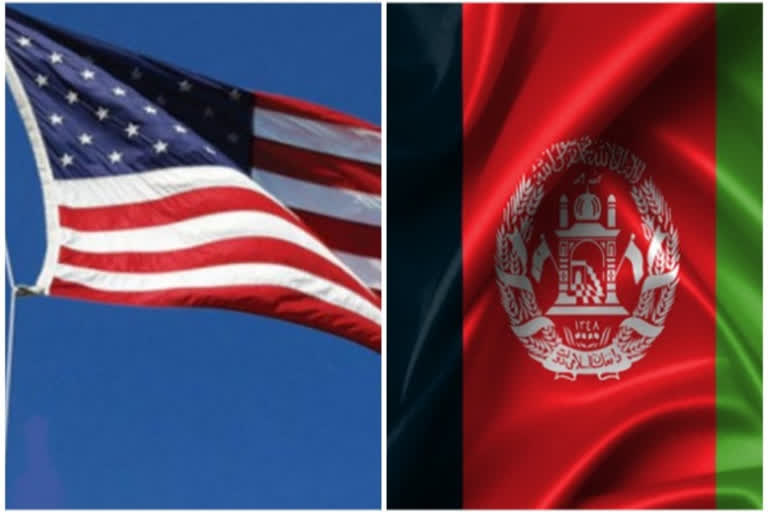New Delhi:The United States troop’s withdrawal has begun today (Saturday), according to the Afghan Ministry of Defense, bringing the longest war nearly to an end, but this raises a question as to what implications it would have on the Afghan government, including neighbours-India, Pakistan, China, and Russia?
ETV Bharat spoke to an expert to have an in-depth understanding of the matter.
Former ambassador Ashok Sajjanhar says that the decision by the Biden administration to withdraw all troops from Afghanistan by September 11 this year, indicates that the future of Afghanistan is very uncertain for the coming few years and that the influence of the Taliban will continue to increase in Afghanistan.
Speaking to ETV Bharat, former ambassador Sajjanhar said, "As far as withdrawal is concerned, it is been happening for quite some time now. The peace deal as it was touted was signed on February 29, 2020, and it was agreed that the US would withdraw all troops by May 1, 2021. During the signing of the agreement, the United States had about 10,000-12,000 troops. So far, the US has withdrawn about 8,000 troops and there are just about 2,500 troops left there."
Also read:Formal start of final phase of Afghan pullout by US, NATO
It shows that the United States is desperate to leave as it’s been 20 years that US troops were deployed in Afghanistan. It was termed a never-ending war. But now, America has made up its mind, although the Pentagon might not be fully supportive of the move because they feel that if the US has to be safe, America should be in Afghanistan so that it takes care of the security as far as the terrorist groups are concerned, he said.
But what it means for Afghanistan is a big question mark, because there were several agreements that the Taliban and the US had signed and incidentally, the democratically elected government of Ashraf Ghani, was kept out of these deals, he pointed out.
“So basically, what the Taliban was required to do is to ensure lessening of violence, if not of the complete ceasefire; it will not provide support to forces like Al Qaeda and ISIS, which are inimical to the US; thirdly; it will engage in constructive dialogue with the Kabul government and with other elements of the Afghan society so that there can be peace and reconciliation in the country. But the violence has not come down. In fact, it has increased manifold and there has been no serious attempt by the Taliban to engage in dialogue with the Afghan government. It was expected that when Biden comes to power, the US troops would stay for slightly longer but now, Biden has set the deadline for September 11. Therefore, the influence of Taliban will continue to grow because the US forces and the NATO forces would not be there in Afghanistan to fight against the violence perpetrated by Taliban”, Sajjanhar explained.
Violence against Afghans has increased manifold in recent weeks, with more than 100 Afghan security personnel killed. Atrocities against women continue. On Friday, a huge blast in the Southern Afghan regional capital killed dozens as they broke their fast during the Islamic month of Ramadan.
When asked if it was a wrong decision by the US to withdraw from Afghanistan and what impact it would have on the neighbouring countries, including India, China, Russia and Pakistan, Sajjanhar said, “From the perspective of the United States, it was the only decision because, in the last 20 years, it has lost 3,000 soldiers, spent about 3 trillion dollars and still the territory under the control of the Taliban has been growing, therefore, the US had to get out of it. But now, the United States says the Al-Qaeda forces in Afghanistan have been so degraded that they do not pose a threat to America.
Sajjanhar said the impact of Biden’s announcement to withdraw troops came as a wrong decision for the Afghan government and its people because it was not even a part of the deal that was signed by America with the Taliban.
Also read:At least 30 Afghan soldiers missing after Taliban attack in Ghazni
